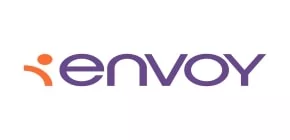- within Immigration topic(s)
- in United States
- with readers working within the Media & Information industries
Each year, approximately 55,000 individuals apply for visas to enter the U.S. through a program known as the Diversity Visa (DV) Lottery.
This lottery allows individuals from countries with historically lower volumes of immigration to the U.S. to apply for the Diversity Visa.
The U.S. government created this lottery program in 1990 as a result of the passage of the Immigration Act of 1990 and the State Department administers the program.
Who Can Enter the Diversity Visa Lottery?
The lottery is only open to applicants from countries with low immigration rates to the U.S., which changes each year.
As a rule, countries that have had more than 50,000 citizens immigrate to the U.S. in the past five years are ineligible from the program. Individuals from countries with higher rates of immigration to the U.S. are not eligible for the program, such as Canada, Brazil, China, India and Mexico. Most entrants are located outside the U.S., but some are already in the U.S. on other visas.
To view a full list of countries allowed in the diversity lottery, please click here.
If individuals cannot register for the diversity lottery because of their country of birth, they may still meet eligibility requirements in other ways.
For example, individuals whose spouse is from an eligible country may apply for the lottery. They may also be eligible to apply based on their parents' country of birth if one or both parents were born in an eligible country. For additional information, individuals should speak to their immigration attorneys to see if they're eligible for the diversity lottery.
What Is the Diversity Visa Lottery Registration Process?
The State Department conducts the lottery each year. Entrants should apply for the lottery between the dates noted by the State Department. To register for the DV lottery, entrants submit an online application with a digital photo through the official lottery website. Dependents may be included in the application. After submitting their application, entrants will receive a confirmation number and can use the confirmation number to track their application's status.
The U.S. State Department randomly selects DV lottery winners. They publish lottery results on its official DV lottery website, which foreign nationals can check to see if they were selected. Each year, the agency announces a specific date that it will notify individuals if they were chosen.
It's important to note that the State Department's DV lottery website is the only official location where lottery results are posted.
Are There Entry Requirements for the DV Lottery?
Individuals will need to meet some eligibility requirements if they wish to enter the DV lottery.
For instance, applicants must have graduated from the U.S. equivalent of high school, or during the immediately preceding five years, have at least two years' worth of relevant work experience in an occupation that requires at least two years of training or experience to perform the occupation.
Entrants must also meet all other admissibility requirements to enter the U.S. if selected. Entrants should note that in-person interviews are often required as well.
Protecting Against Fraud in the DV Lottery
According to the State Department, there has been an increase in fraudulent emails and letters sent to DV Lottery applicants.
Luckily, applicants can take some precautions to protect against fraud.
Individuals should avoid websites that mimic the State Department's because the State Department is the only government entity that administers the DV Lottery.
Additionally, the State Department will not contact individuals about their application by phone, text or email and they will not request any payment for registration.
For additional information on how to protect against fraud, please click here.
Where Can Entrants Find More Information?
Additional information for DV lottery requirements is available from U.S. Citizenship and Immigration Services (USCIS) and the U.S. State Department.
Stay updated on information related to the Diversity Lottery and other U.S. immigration news by subscribing to Envoy's immigration blog.
Originally published 7 April 2022
The content of this article is intended to provide a general guide to the subject matter. Specialist advice should be sought about your specific circumstances.


